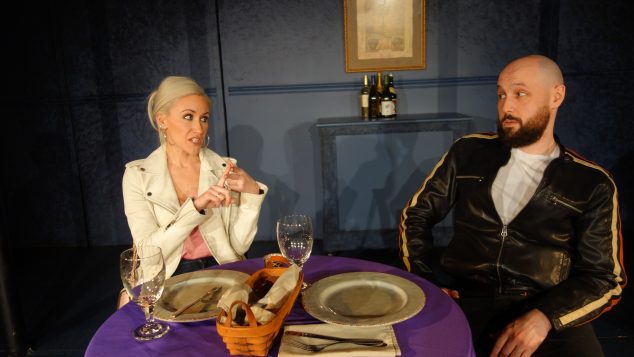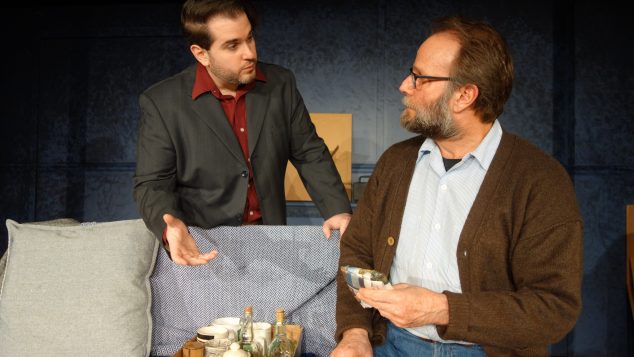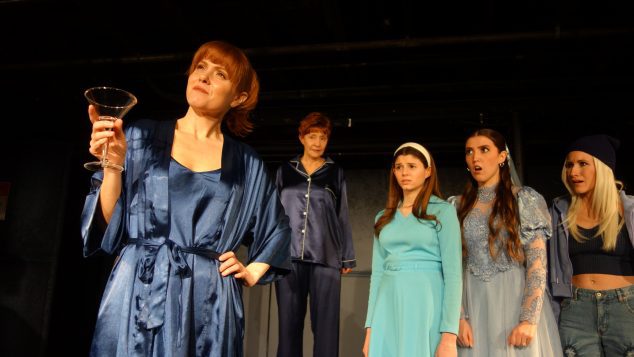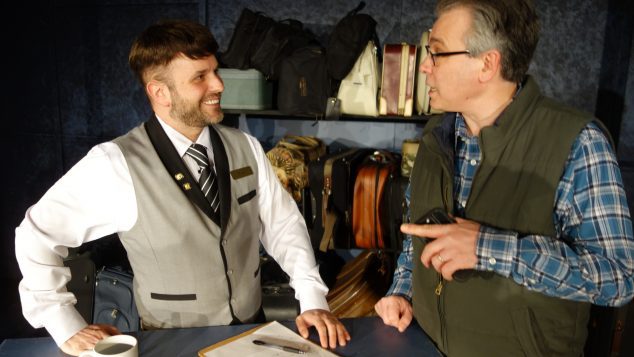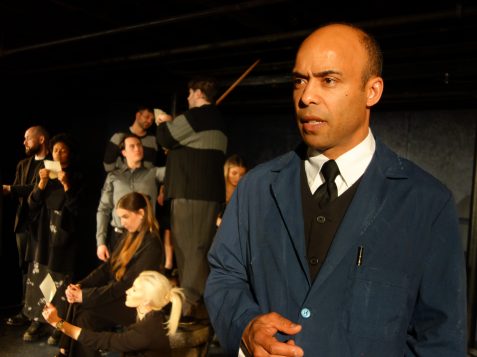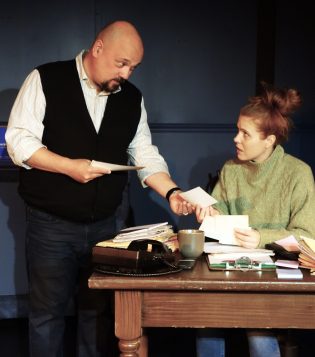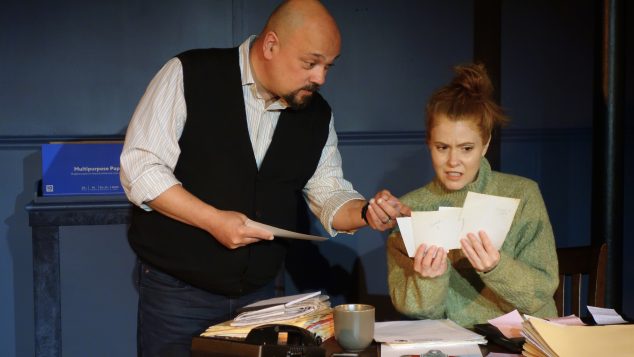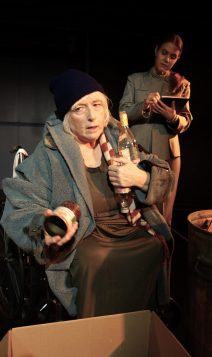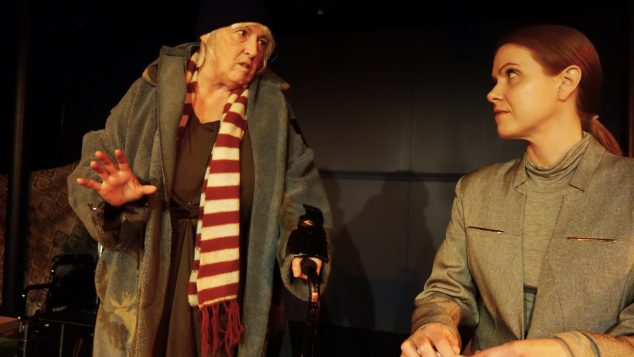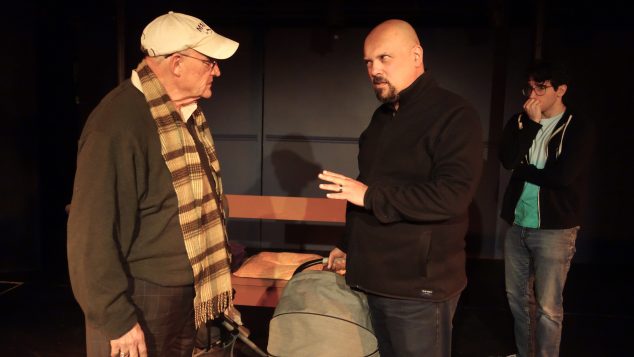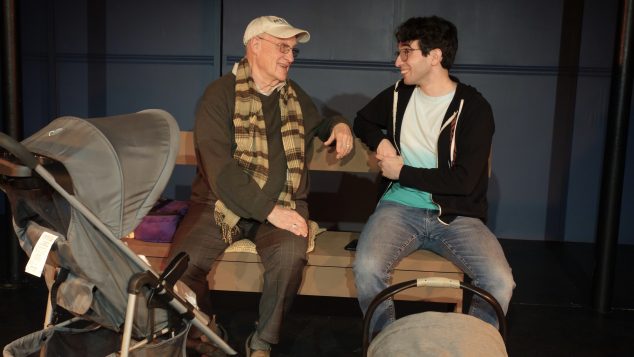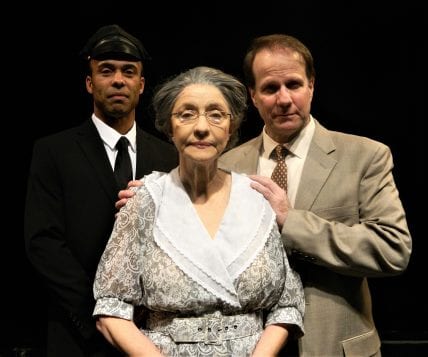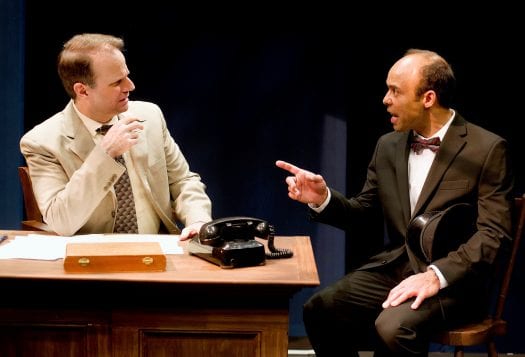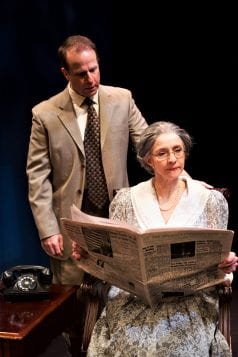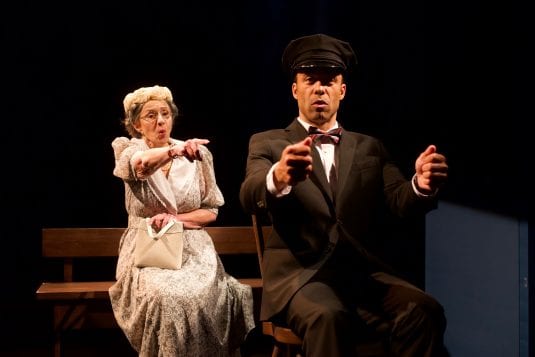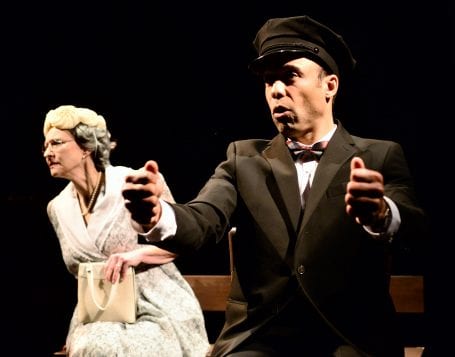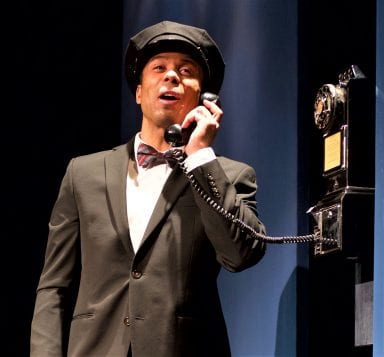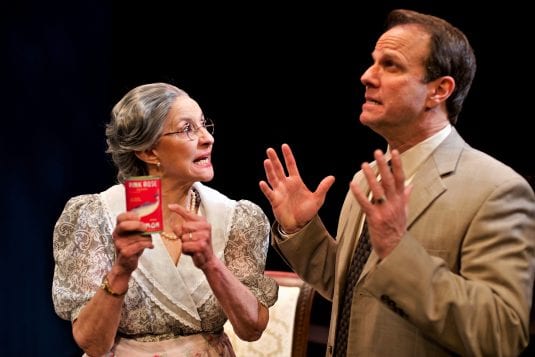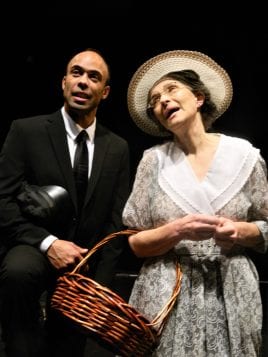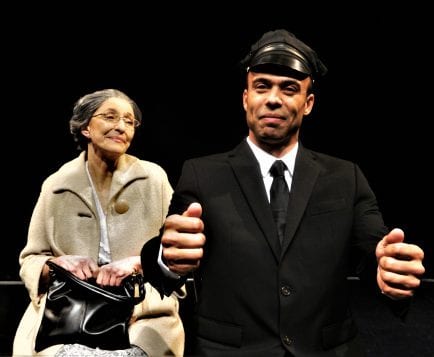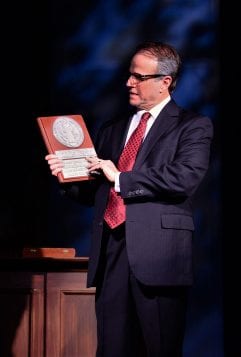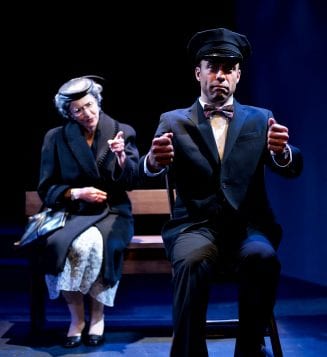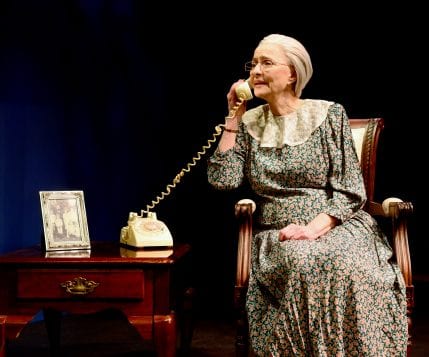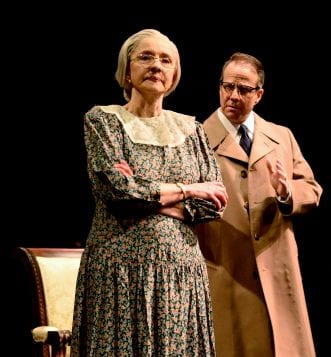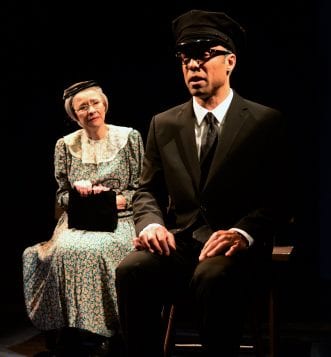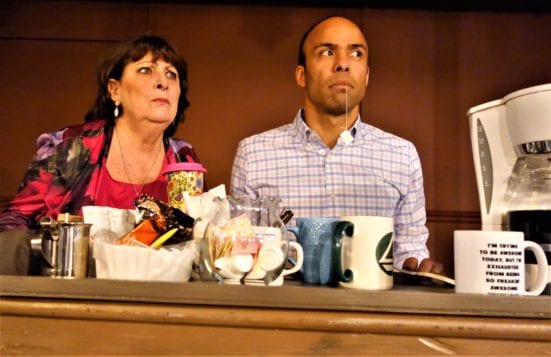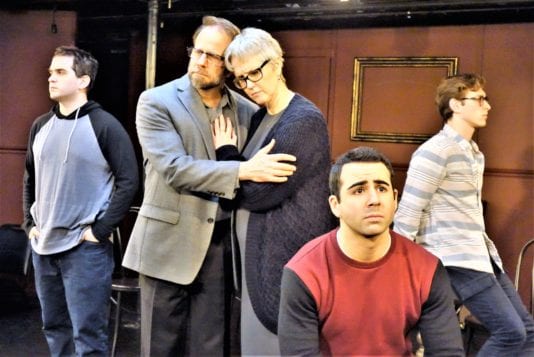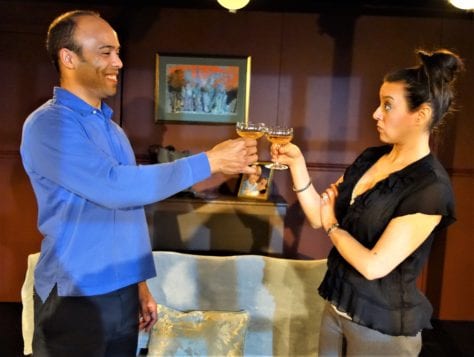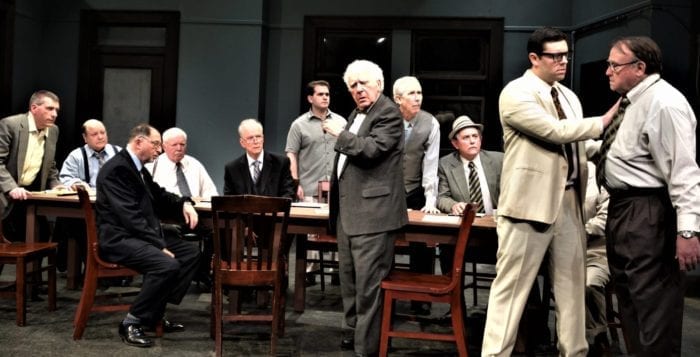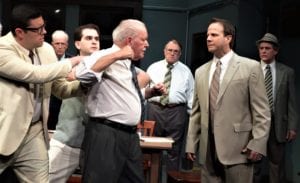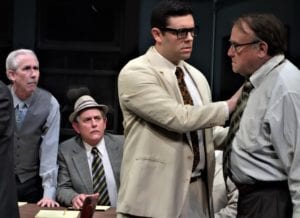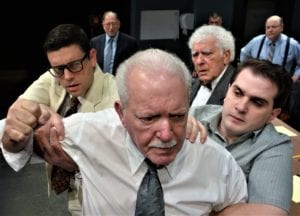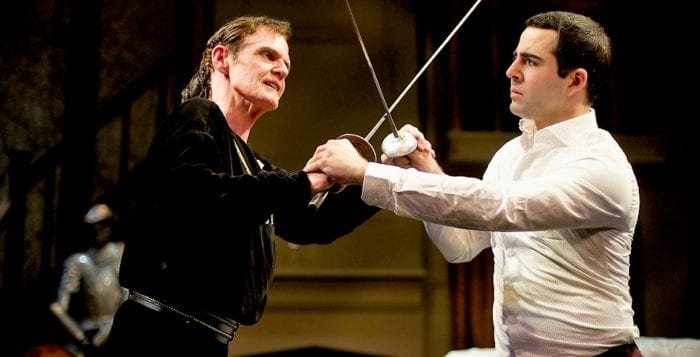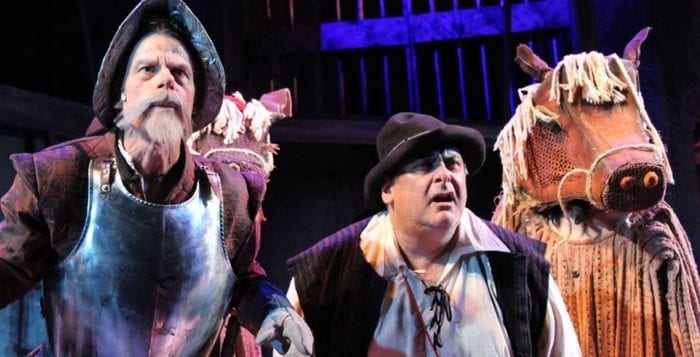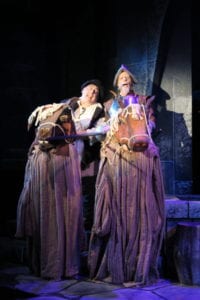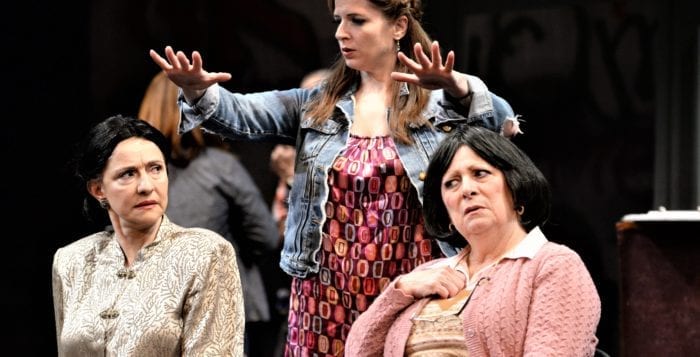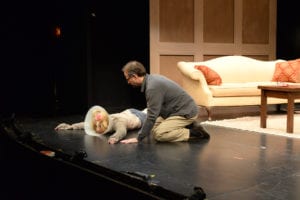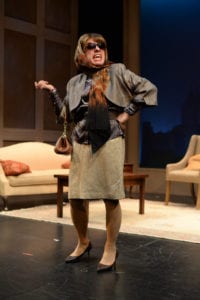By Julianne Mosher
For 24 years, Theatre Three’s “Festival of One-Act Plays” has been bringing new voices to the not only Port Jefferson, but to all of Long Island.
Festival founder and director Jeffrey Sanzel told the audience on opening night that the festival, which is nearing a quarter-of-a-century next year, received 750 submissions for the 2023 season from all around the world. “I’m expecting 1,000 next year,” he said.
And of those 750 submissions, eight were selected, directed, rehearsed and will now be performed through March 25. Of those eight, none disappoint.
For an hour-and-a-half, the audience sits quietly, engaged, watching, listening to what the actors have to say. And the lineup is unique — as a viewer, you don’t really know what to expect coming in.
The festival starts off with “Down to the Wire,” written by Julia Everitt, a New York City-based playwright with 37 stage plays to her name. This piece shows us what goes on inside a college dormitory, when a roommate played by Danielle Pafundi is hilariously losing her mind thanks to procrastinating an assignment. And despite what you might think, the play is not about camels.
Then comes “A Citrus Day,” by Mark Cofta, a Pennsylvania-based playwright, who sadly passed away last July. With a minimalist set of just a bus bench and a suitcase, the audience watches two strangers together unearth a dark family secret. While sad and thought-provoking, it reminds you that you just need to make lemonade when life gives us lemons. Performances by Melissa Norman and Tristan Prin are top notch.
Following the more-somber bus stop story is Leslie Dianne’s “Accepting Adina.” Father Steve Ayle and son Steven Uihlein sit side-by-side in the patriarch’s living room, packing away mementos. Together they talk about the mother, Rebecca, and how her illness and assisted living stay is impacting them both. “Accepting Adina” is a tough look at grief, but Ayle’s and Uihlein’s performances are so raw that you feel the sadness, but also the hope of the future, we all feel when a loved one is lost. Tissues are required for this one.
The best performance of the night by far was by Phyllis March in “The Dating Pool.” The scene opens up with Phyllis, 61, standing at a diving board in a dark pool. She’s visited by her 16-year-old self (Ava Andrejko), then herself at 23 (Samantha Fierro), 36 (Brittany Lacey) and 49 (Tamralyn Dorsa), where present day 61 is reminded of her lost loves of each of those lovers impacted her in that moment. The scene ends with her four former selves encouraging her to take the plunge. “The Dating Pool,” written by Arianna Rose is a thoughtful piece, and full of laughs, that can relate to any age in the audience.
After a brief intermission, we’re inside an airport with Keith Whalen’s “Unclaimed Baggage” — a hysterically funny look at coming back to the real world after a relaxing trip. Not only does Marvin (but shhh… don’t tell the clerk his name), played by Angelo Dibiase, have to pick up his suitcase and some medicine after a long plane ride, but he has a special encounter with Finn, played by Jason Furnari, who just wants to help.
Another audience favorite was Larry Brenner’s hilarious supernatural dating story “First Bite.” Here we learn about Wanda’s (Brittany Lacey) past dating history — and let’s just say she has a type — while out to dinner with John (Evan Teich). The scene starts out with a normal looking couple enjoying drinks and each other’s company, until Wanda asks John her place or his? You’re going to laugh a lot, but make sure you leave your garlic at home.
And finally, Mark Loewenstern’s “The Slightly Exaggerated True Story of ‘Civic Virtue’” concludes the show with a fascinating exploration of the intersection of the public eye and the power of art. Based loosely on the famous statue and fountain that once stood in front of New York City Hall in Manhattan, we watch a fast-paced history of architect MacMonnies’ (incredibly played by Antoine Jones) thought process behind sculpting the nude man and two sirens.
We go through nearly two centuries of the public’s opinion on it, how it moves, and have visits from some well-known elected officials including Mayor La Guardia, Anthony Weiner and Robert Moses. Not only is it a brief, inside look of a famous piece of art, but it reminds the audience how statues (no matter how sexist, racist or now-deemed inappropriate they may be) are still a part of our history. While you’ll learn from this one, you’re also going to laugh.
Tickets are $20 for the show, plus there’s a cash bar as you walk in. Make sure you visit Theatre Three’s second stage at The Ronald F. Peierls Theatre in Port Jefferson this month for a great night out. You’ll laugh, you’ll cry and you might learn a fact or two about “Civic Virtue” for your next trivia night.
Theatre Three is located at 412 Main St., Port Jefferson. For more information, or to order tickets, call 631-928-9100 or visit www.theatrethree.com.

